- Home
- Troy Denning
Shadows of Reach: A Master Chief Story Page 8
Shadows of Reach: A Master Chief Story Read online
Page 8
“Weapon?” The Kig-Yar cackled. “That is no weapon.”
“No?” Castor grabbed the head of the device, then dragged it around so that the end was turned toward him—and found himself looking into an emitter nozzle as big around as his eye. It reminded him of some human machines he had seen many years before, in the tantalite mine on Meridian. “It is part of a drilling machine, is it not?”
“Oh yes. A plasma drill, mining.” The Kig-Yar paused, then spoke more thoughtfully. “My clan trade for them all the time, before we join Keepers. I still have reward?”
“Yes. Two rewards.”
This time, Castor did not bother looking toward Feodruz. Shining his lamp on the ramp, he ran its beam along the claw marks he had noticed in the bedrock earlier.
“And three rewards if you can tell me what made those marks.”
“Then I am happy Keeper today,” the Kig-Yar said. “Those marks from teeth on the digging bucket of hauling machine. Very powerful.”
“A digging bucket,” Castor repeated. He illuminated the drill head. “And a plasma drill.”
“How strange,” ‘Gadogai said. “Why would someone use an insertion craft to deliver mining equipment?”
It was obvious to Castor that the blademaster already knew the answer—because Castor did too.
“Because they are ONI,” he said. “And because they know we are searching for the Portal under the Mountain.”
CHAPTER FOUR
0631 hours, October 7, 2559 (military calendar)
Tárnoc Gorge, Ujeger Highlands
Vadász Dombok, Continent Eposz, Planet Reach
In the dawn rain, the narrow gorge reminded John of the sealed-bobsled courses in the old vids of the Martian Olympics. Its glassy walls rose a hundred meters overhead, and its serpentine channel snaked down a chute so steep and slippery it was often faster to skate-slide than to run. The load-haul-dump machine followed close on his heels, hydroplaning on the wet glass and splashing through plunge pools, hitting walls and making thunder.
The excavation equipment could easily be damaged down here, but at least it wouldn’t be strafed. The gorge was too narrow and crooked for a Seraph assault, and even a Banshee would be so busy dodging walls it would be impossible to launch an effective attack. What would happen when they ran out of canyon, John had no idea. They would just have to improvise.
Kelly’s voice sounded inside John’s helmet. “Hold advance.”
She was on point, a hundred meters ahead… probably. With all the bends in the gorge, it was hard to maintain consistent spacing. The drilling jumbo trailed the LHD behind John, and Fred followed both. Linda brought up the rear, staying a hundred meters back so she could ambush anyone who dropped into the canyon behind the team.
Everyone was on TEAMCOM, so the equipment drivers should have heard Kelly as clearly as had John. But the LHD continued to advance hard, its tires hissing on the wet glass. John raised his fist, signaling Mukai to follow Kelly’s instructions and stop.
“Wait—I’m trying!” Mukai said.
“Same here,” Chapov added. He was driving the jumbo, with Van Houte standing on the operator’s platform beside him. “Wheels are locked, still sliding!”
Chapov’s transmission ended in a crash of metal against glass, and John realized the canyon floor had grown so steep that the excavation machines were behaving more like toboggans.
“Do what you can,” John said. His own feet threatened to fly out from beneath him each time he tried to slow his descent. “I’ll see what the problem is ahead.”
“The problem is we’ve run out of canyon,” Kelly said. “Stop those machines now—or get off them.”
There was a moment of dead air; then Mukai said to Chapov, “You first, Special Two. I don’t want you sliding into me when I drop my bucket.”
“Reasonable,” Chapov said. “But I don’t have a bucket. Can the stabilizer stands handle it?”
“Only one way to find out,” Mukai said. “Drop the rear ones first. Drop them hard.”
Two loud crackles sounded as the drilling jumbo’s rear stabilizer stands smashed into the canyon floor and began to drag into the lechatelierite. A moment later, two more bangs sounded as Chapov dropped the front stands, and a loud screeching echoed off the walls.
John continued forward, slide-running down the wet glass, then rounded a bend where the gorge grew so narrow he could almost touch both walls at once. The floor fell away in a cascade of knurled lechatelierite, descending a hundred steep meters to the canyon mouth, where Kelly stood silhouetted against the silvery expanse of a vast basin that extended almost as far as the eye could see, clear to a ragged line of olive-gray mountaintops rising from somewhere beyond the pearl-gray horizon.
The scale of the devastation hit John like a cannon round. He had been on glassed worlds before, had seen vast sweeps of farmland shining like a mirror beneath a blanket of lechatelierite. But he had not known what those worlds looked like before they were glassed, had not seen in his mind’s eye the endless fields of wheat and bambont that had once waved there in the wind, had not felt quite so personally robbed by what the enemy had taken from humanity. Now… now he was grateful that the war was over, because with the rage he felt building inside, he was worried that he might have done some things worthy of the “demon” nickname that the Covenant had given to the Spartans.
John began to spring side to side down the canyon, launching sprays of glass each time he slammed his heels down to control his descent. The nearer he drew to Kelly, the more he understood that she was on the edge of an abrupt drop-off—and that the floor of the basin lay hundreds of meters below.
“Don’t tell me we’re on top of a waterfall,” he said, straining to slow himself.
“Obviously, I don’t have to.” Kelly tipped her head back, looking toward the canyon rim a hundred meters above, then said, “We need a better way out of here.”
“Getting out of here isn’t the problem. It’s what comes next that worries me.”
“Yes, there is that,” Kelly said. “Getting strafed is no fun.”
A tremendous clang echoed down the gorge behind them. John whipped his head around and saw the LHD wedged at the top of the cascade, its front wheels off the ground and its bucket jammed into a pocket of bare stone where it had broken through the lechatelierite.
He looked forward again just in time to plant his feet against the uphill side of a knurl, then absorbed the landing in his knees in order to stop. John had descended to within twenty meters of the canyon mouth. One bad step would put him in danger of shooting down the glassy streambed and over the waterfall. He began to pick his way down carefully, kicking his heels into the same footholds Kelly had chipped into the lechatelierite a few minutes earlier.
“Special Leader, prep a way to get the equipment out of here,” John said, indicating Major Van Houte as pilot of the Special Delivery. “Blue Two will help you with setting up any blasting you need to do, but don’t execute until I give you the all-clear.”
Fred’s status LED winked green, but before Van Houte could acknowledge, Chapov was on the channel.
“There’s a feeder ravine about three hundred meters back that may be a good way—”
“Tell it to Special Leader,” John said. Enough was enough. Chapov’s enthusiasm had been creeping toward insubordination for the last few hours. He had insisted on driving the jumbo after escaping the crash site, and he always seemed eager to offer his opinion in place of Van Houte’s. The time had come to let Chapov know he was trying to impress the wrong guy. “Your commander is in charge of that.”
John stopped opposite Kelly. As she had warned, the canyon ended in a sheer precipice, where the stream shot off the edge and dropped more than two hundred meters to the slope below. Over a distance of several kilometers, it descended another thousand meters, then simply disappeared on the floor of the immense basin he had first glimpsed from higher in the canyon. Most of what he could see now was covered in gray lechatelieri
te, but scattered across the flats were thousands of rippling ponds and hundreds of dark swaths that looked like farm fields cut from beneath the glass.
John raised his visual magnification to maximum and saw that he was at least partially right. The dark swaths were all open ground, much of it tilled and surrounded by cut-block walls of lechatelierite. But the reclaimed fields were either barren or covered in smashed crops, and in some of the larger openings there were heaps of toppled and shattered blocks suggestive of razed villages.
John saw no sign of human rehab pioneers anywhere. But in the center of the basin, several armored vehicles were maneuvering through a set of town-sized ruins and firing plasma bolts at each other. In the rain, his visual enhancement systems could not resolve the image clearly enough for him to make out their affiliation markings. Still, the vehicles on both sides seemed to be floating on boosted gravity drives, and they had the bulky, up-armored hulls typical of Banished combat rigs.
John had his computer send a directional indicator to Kelly, then asked, “What do you make of that?”
“The same thing you do. I have no idea.”
“Guess.”
“If I must.” Kelly studied the scene, then finally said, “I noticed something similar earlier.”
A directional indicator appeared on John’s HUD, and he followed it to a small square of open ground on the near side of the basin. It appeared to be a reclaimed farmstead with a few dozen dismounted figures exchanging electrolaser fire or arcing bright incendiaries of plasma from behind the glass-block walls of several semi-intact buildings. The shapes were still too tiny to identify with certainty, but judging by the body types and the way they moved, they appeared to be primarily Jiralhanae and Kig-Yar—on both sides.
“I can think of only one explanation,” Kelly said. “They must be fighting over the spoils.”
“Of a rehab colony?” John asked. “The buildings are wrecked and the crops are ruined. What’s left?”
“I didn’t say it was a good explanation.” Kelly paused, then said, “But I haven’t seen any sign of humans on either side. So I think it’s safe to assume the pioneers have fled.”
“Or died?”
“Fled,” Kelly said. “Those raiders don’t appear organized enough to eradicate an entire colony. And rehab pioneers aren’t soldiers. They wouldn’t stick around to fight.”
“Makes sense,” John said. “And just as well. A big battle on Reach would have attracted Cortana’s attention for sure.”
“I wish you wouldn’t do that.”
“Sorry,” John said. Worried about the unknown extent of Cortana’s electronic surveillance capabilities, Kelly had developed an aversion to speaking the AI’s name. Another thing John had to get used to. “But Reach is a dead system to her. There isn’t a repeater station within a hundred kilometers of here.”
“That we’re aware of. Who knows what’s hiding in orbit?”
“That’s not a serious question,” John said. “Right?”
“Even the Infinity isn’t infallible,” Kelly said.
The UNSC Infinity was now the primary base of resistance to Cortana and her forces, a five-and-a-half-kilometer supercarrier serving as the flagship of the handful of UNSC vessels that Cortana had not yet captured, destroyed, or decommissioned. Currently on-station in a horseshoe orbit designed to keep it within easy support-range of Reach, the Infinity was the United Nations Space Command’s largest and most advanced vessel, utilizing technology reverse-engineered from Covenant and Forerunner sources.
It was, in short, humanity’s last, best hope.
“You really think the signals deck would miss a slipchannel energizing?” John asked. “Or that Lasky wouldn’t have countercomms jamming it in a second?”
“I think there’s no sense taking unnecessary chances,” Kelly said. “ ‘Speak the devil’s name and he doth appear’ and all that.”
John cringed inwardly at the comparison. It couldn’t be helped—he wanted to think of Cortana as broken rather than evil, but he understood Kelly’s concern. The AI and those aligned with her were monitoring every communication net they could access, including the web of supraluminal links that bound interstellar civilization together. So in the wrong place under the wrong circumstances, speaking her name was literally asking for trouble—and TEAMCOM’s encryption was no protection. Cortana was intimately familiar with Spartan cipher routines, and she might even have a universal key that would allow her AI followers to decrypt them in a nanosecond.
“Fair,” John said. “The Banished here are surprise enough for one mission.”
He called up a pre-glassing map of Reach, then had the computer scale it and superimpose the town of Tököl over the razed area in the center of the basin. As he had suspected, the map’s terrain lines across the entire plain were a sharper version of what he saw on the wet glass below, with deeper ravines and more pronounced ridges. But the features were in the right places, and that allowed him to pinpoint his current location: in the mouth of Tárnoc Gorge, atop Tárnoc Falls overlooking the Arany Basin.
John hadn’t recognized it thanks to the destruction from the Covenant bombardment, but everyone in Blue Team had been in the same canyon thirty-seven years earlier, during their childhood training. The entire class had been ordered to paint a set of food-dye horns on the flank of every goat in the Bull’s Blood wine region without being seen. It had taken three nights, and Blue Team had spent the daylight hours hiding in the network of sandstone slot canyons that cut through the Ujeger Highlands. By the final night, there had been so many locals watching for them that they’d had to extract via a night climb down the Ujeger Cliffs.
But there would be no escaping down the cliffs today—not if they hoped to take the excavation machines to CASTLE Base and complete the mission.
John located the Highland Mountains cordillera on the map, then superimposed them on the ragged gray line of mountaintops rising beyond Arany Basin. Only the tips of the highest peaks were visible, but they had the proper topography and locations.
Except for Menachite Mountain, of course. Where it should have been, there was only a massive empty notch left by the removal of its bulk. The map showed a distance of just over eleven hundred kilometers to the notch, following a route that crossed straight through the southern third of the rehab colony’s cluster of farmsteads.
With no satellite net to provide geo-spatial navigation and a heavy cloud cover that prevented celestial navigation, Blue Team would need to rely on dead reckoning and landmark triangulation to find its way to the remnants of CASTLE Base. John fixed a destination point on the notch where Menachite Mountain used to be, then transferred all of the navigation data to his team. Each Spartan’s onboard computer would use stride counting and inertial guidance to monitor Blue Team’s position. Between the four of them—even fighting and detouring—they ought to be able to consolidate the data and arrive within a hundred meters of the target.
Fred was the first to comment. “At thirty kilometers an hour—”
“We can average forty across the glass,” Mukai interrupted. “Perhaps even fifty, if we’re not crossing ridges and ravines.”
“Fine, let’s say forty,” Fred said. “That’s still a twenty-eight-hour trip. Minimum.”
“Twenty-eight is no problem for me,” Chapov said. “And if Special Leader needs sleep, he can ride in the LHD bucket.”
Kelly turned to John and showed her palm, her fingers splayed and curled toward the sky in a silent expression of disbelief. “Special Leader isn’t going to be the problem, Two.”
“Well, it won’t be me,” Chapov said.
“Nope,” Fred said. “It’ll be twenty-eight hours of driving across open terrain with enemy fighters overhead.”
“Yeah. We need a way to fix that.” John looked back toward the duel between the Banished armor. He didn’t see much sign of air support, but there were plenty of infantry-sized spikes and bolts flying back and forth between rubble piles—and infantry ra
rely marched into battle anymore. There were several up-armored Shadow troop carriers parked out of harm’s way on either side of what was once the town, along with at least two Phantoms. “And I might know how.”
John outlined his strategy. After a long discussion and a couple of improvements, the Spartans began to climb the canyon wall.
It was treacherous because of the rain, and the rim was out of range of the grappleshots mounted on their GEN3 Mjolnir forearms. So they spent a lot of precious time punching and kicking hand- and footholds into the glassed cliffs. Upon reaching the top, John, Kelly, and Linda were planning to continue over Szeged Ridge into Hosszú Völgy—the valley where they had crash-landed the night before—and down into Arany Basin. Assuming they made it that far, they would infiltrate one of the Banished skirmish zones and commandeer a form of transport capable of carrying the excavation machines.
Meanwhile, Fred would return to Tárnoc Gorge to oversee Special Crew’s defensive preparations and help them fight off attacks until transport arrived. It would be a risky assignment because it would take the rest of Blue Team most of the day just to reach the closest skirmish zone. But if they could hold out until John, Kelly, and Linda returned with suitable transport, it would be a simple matter of taking advantage of the Banished’s disarray to relieve Special Crew, then proceed to CASTLE Base under enemy colors.
Kelly was the first climber to reach the rim of the gorge—the fastest, as usual. Rather than going over the top, she chipped a firing platform into the glass there and turned around so she could watch the sky behind them. John arrived next, cresting the wall about fifty meters down-canyon from Kelly. He also kicked a platform, creating a shelf that was only about a third of a meter deep before his boots broke through into an airspace. When he began to smash away the lechatelierite in front of his knees and chest, he quickly discovered that the airspace continued all the way up to the canyon rim, creating a fist-wide gap that also extended downward as far as he could see.

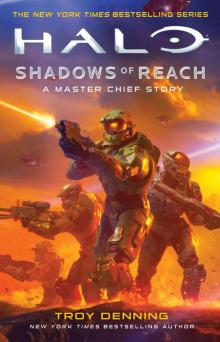 Shadows of Reach: A Master Chief Story
Shadows of Reach: A Master Chief Story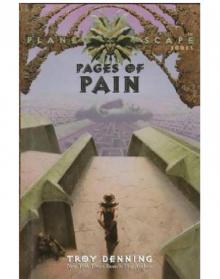 Pages of Pain p-1
Pages of Pain p-1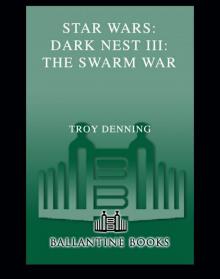 Star Wars 396 - The Dark Nest Trilogy III - The Swarm War
Star Wars 396 - The Dark Nest Trilogy III - The Swarm War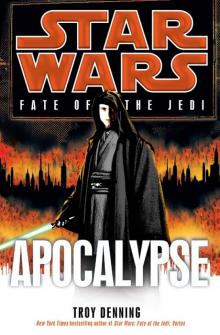 Star Wars: Fate of the Jedi: Apocalypse
Star Wars: Fate of the Jedi: Apocalypse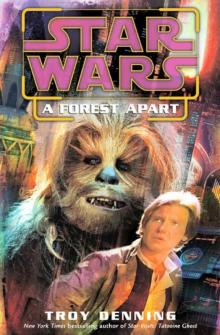 A Forest Apart
A Forest Apart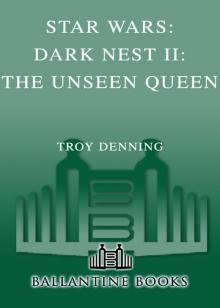 Star Wars: Dark Nest II: The Unseen Queen
Star Wars: Dark Nest II: The Unseen Queen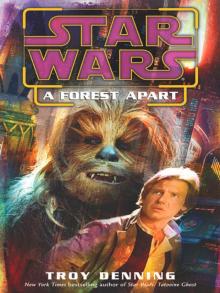 Star Wars: A Forest Apart
Star Wars: A Forest Apart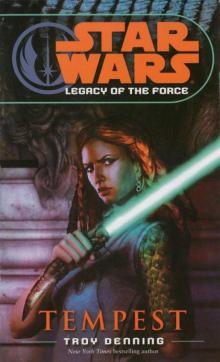 Tempest: Star Wars (Legacy of the Force) (Star Wars: Legacy of the Force)
Tempest: Star Wars (Legacy of the Force) (Star Wars: Legacy of the Force)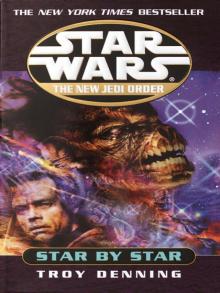 Star by Star
Star by Star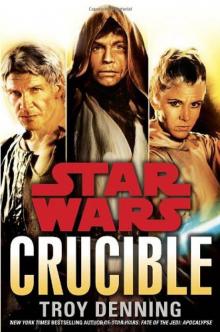 Crucible: Star Wars
Crucible: Star Wars Last Light
Last Light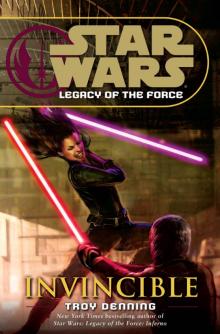 Invincible
Invincible Inferno
Inferno Star Wars - The Trouble With Squibs
Star Wars - The Trouble With Squibs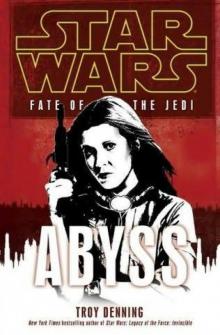 Abyss
Abyss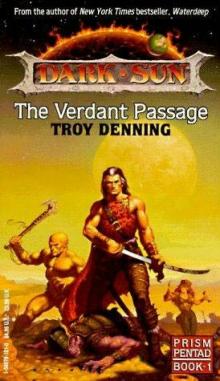 The Verdent Passage
The Verdent Passage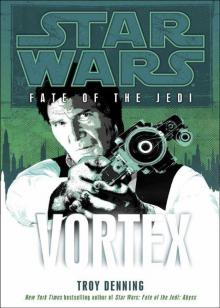 Vortex: Star Wars (Fate of the Jedi) (Star Wars: Fate of the Jedi)
Vortex: Star Wars (Fate of the Jedi) (Star Wars: Fate of the Jedi)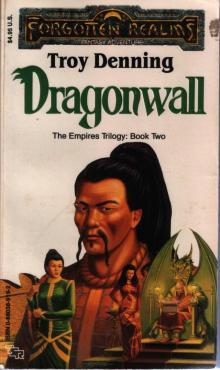 Dragonwall e-2
Dragonwall e-2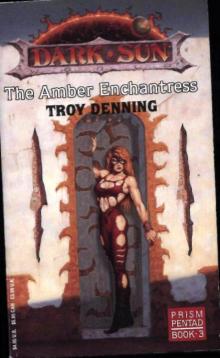 The Amber Enchantress
The Amber Enchantress Crucible
Crucible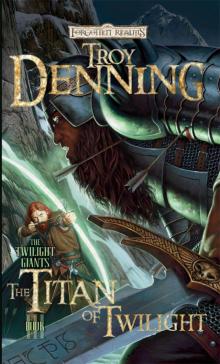 The Titan of Twilight
The Titan of Twilight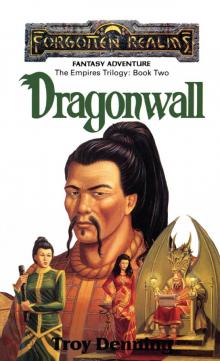 Dragonwall
Dragonwall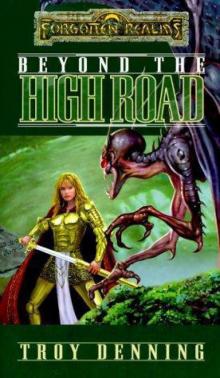 Beyond the High Road c-2
Beyond the High Road c-2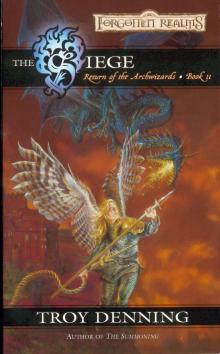 The Siege rota-2
The Siege rota-2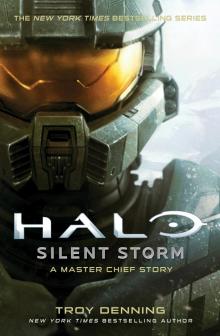 Silent Storm: A Master Chief Story
Silent Storm: A Master Chief Story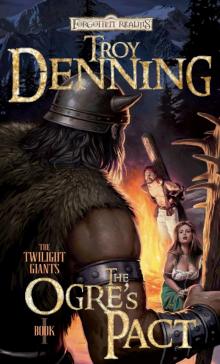 The Ogre's Pact
The Ogre's Pact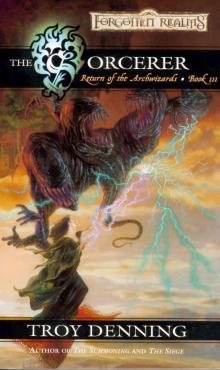 The Sorcerer rota-3
The Sorcerer rota-3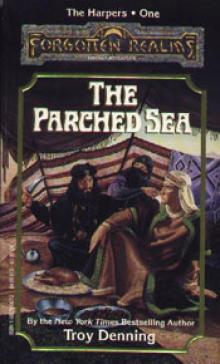 The Parched sea h-1
The Parched sea h-1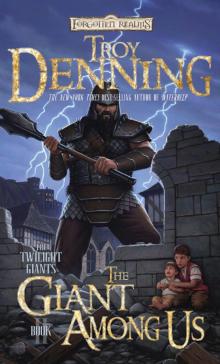 The Giant Among Us
The Giant Among Us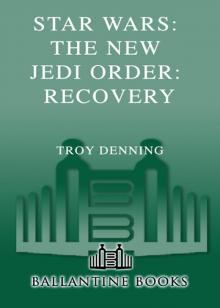 Recovery
Recovery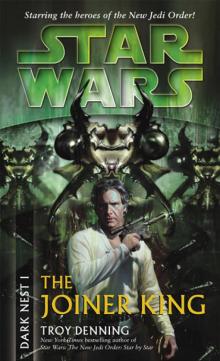 Star Wars: Dark Nest 1: The Joiner King
Star Wars: Dark Nest 1: The Joiner King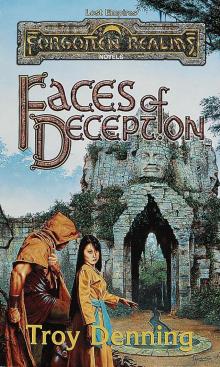 Faces of Deception le-2
Faces of Deception le-2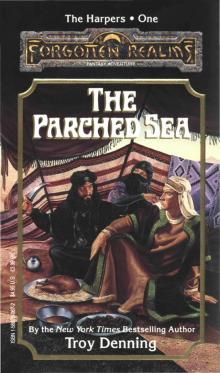 The Parched Sea
The Parched Sea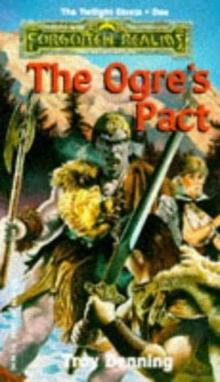 The Ogre's Pact зк-1
The Ogre's Pact зк-1 Apocalypse
Apocalypse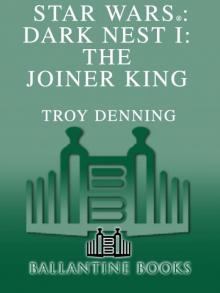 Star Wars®: Dark Nest I: The Joiner King
Star Wars®: Dark Nest I: The Joiner King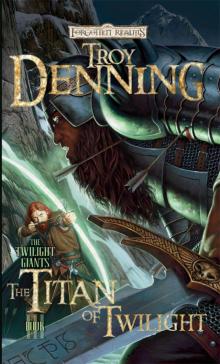 The Titan of Twilight ttg-3
The Titan of Twilight ttg-3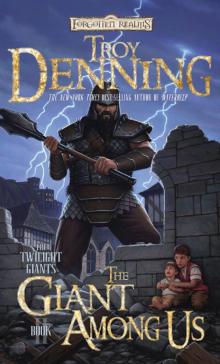 The Giant Among Us ttg-2
The Giant Among Us ttg-2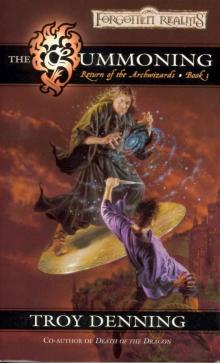 The Summoning rota-1
The Summoning rota-1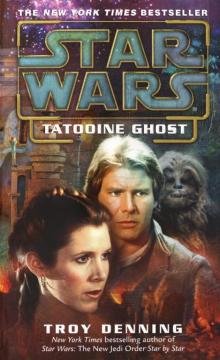 Tatooine Ghost
Tatooine Ghost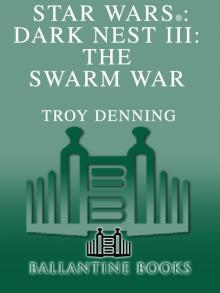 Star Wars®: Dark Nest III: The Swarm War
Star Wars®: Dark Nest III: The Swarm War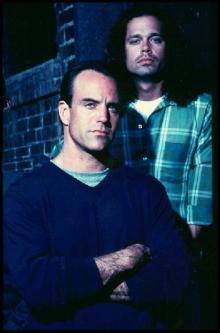 Retribution
Retribution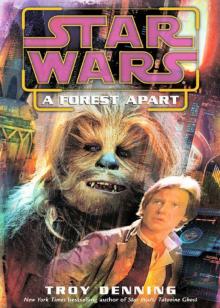 A Forest Apart: Star Wars (Short Story)
A Forest Apart: Star Wars (Short Story)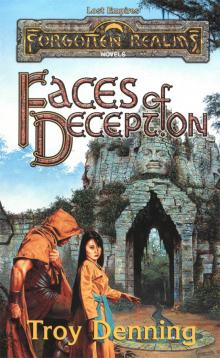 Faces of Deception
Faces of Deception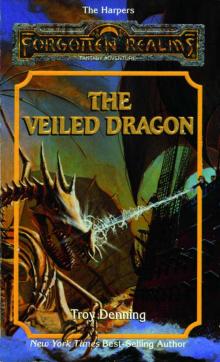 The Veiled Dragon h-12
The Veiled Dragon h-12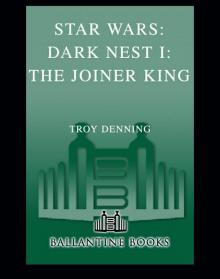 Star Wars 390 - The Dark Nest Trilogy I - The Joiner King
Star Wars 390 - The Dark Nest Trilogy I - The Joiner King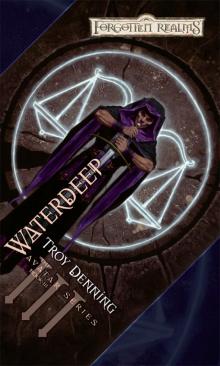 Waterdeep
Waterdeep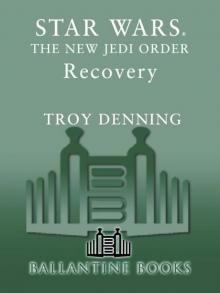 STAR WARS: NEW JEDI ORDER: RECOVERY
STAR WARS: NEW JEDI ORDER: RECOVERY